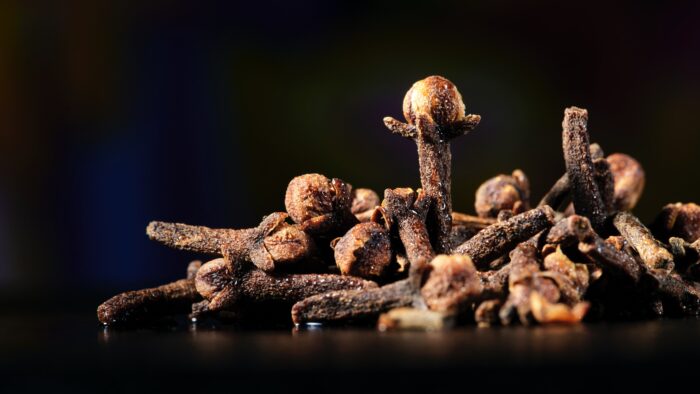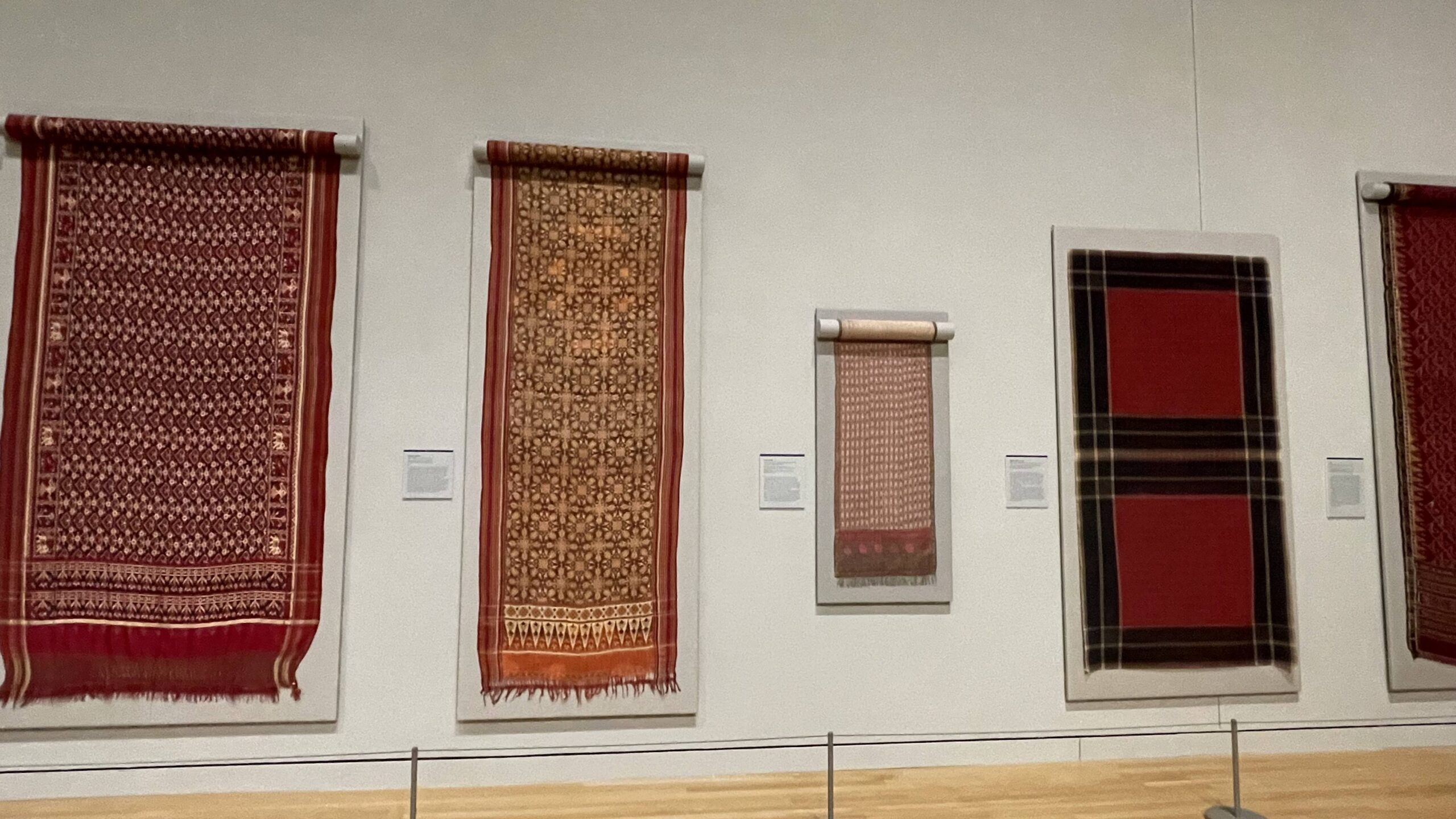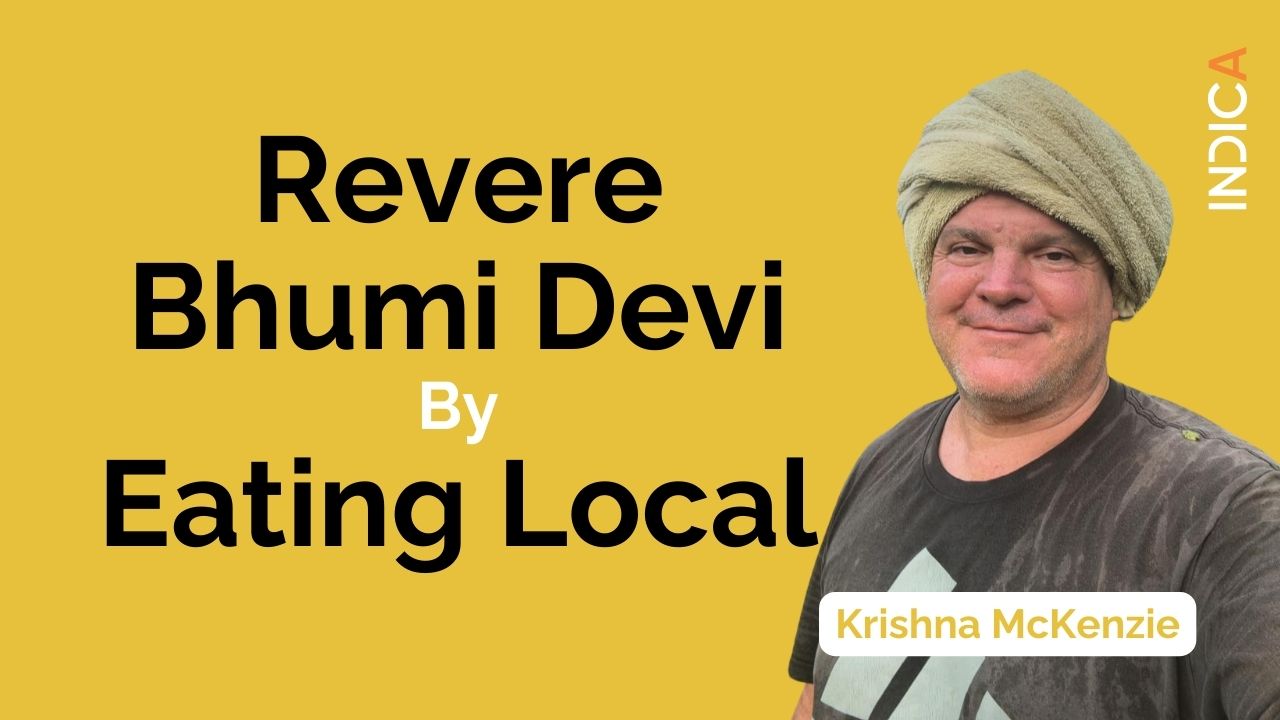A spice with a powerful aroma adding an intense warmth to the dish it is added to is Clove. Clove is a commonly used spice in various cuisines and traditional medicines. Its use dates back to centuries and has been mentioned in various texts such as Charaka and Sushrutha Samhitha, Bhavaprakash Nighantu, and in many literary works such as Kalidasa’s Raghuvamsha and Banabhatta’s Harshacharita.
In Sanskrit, clove is known as Lavanga. There are different names to Clove as mentioned in the Bhavaprakash Nighantu. It is also known as Devakusuma, Shrisangya, and Shriprasunaka.
The clove tree is indigenous to South-East Asia due to its warm and moist weather conditions. This region of Asia was formerly known as Greater India and it remained under the influence of Indian culture ad language. They were home to a number of aromatic woods and spices that were important items of trade. Mainland India was the central hub for trade with the western countries like Greece, Rome, the Arab nations, and more.
The flower buds from the tree are collected once they turn bright red. They are handpicked before the buds bloom, and are dried under the sun. Following the drying process, the bus turn dark brown to black in colour. A very pungent spice, clove contains 15-20% of essential oils. The characteristic aroma and flavour of aroma is due to the presence of Eugenol, an aromatic compound that comprises 85% of the essential oils present in clove. The other constituents are eugenol acetate, iso-eugenol and caryohyllene.
Prior to its use as a flavouring and therapeutic agent, clove was used as an aromatic masticatory after meals to aid the process of digestion by breaking down food into smaller particles. Many Indian sweets have a pinch of clove in them that gives it a nice aroma and boosts the flavour. Garam Masala, a popular spice blend contains clove. A bud or two is added while preparing masala chai.
In international cuisine, clove is used in many preparations. Worcestershire sauce is dominated by clove aroma. Spice blends such as the Chinese five spice, pumpkin pie spice use clove. Cloves are heavily used in the preparation of Pho, a popular Vietnamese dish.

Clove is rich in minerals such as calcium, phosphorous, iron, thiamine, riboflavin, niacin, copper, folates, magnesium, zinc, potassium and sodium. It is also possesses Vitamin A, C, E, and K.
Spices are used in cooking not only because they impart a unique flavour and aroma to the dish but also because it has a wide range of pharmacological effects. Clove has been extensively used in Ayurveda and modern medicine. Bhavaprakash Nighantu says that clove is very good for the eyes and promotes digestive fire. It also manages cough, pitta-related disorders, blood disorders, thirst, nausea, pain and other abdominal issues.
Clove is used to clear intestinal worms and other intestinal infections caused by bacteria, viruses and other pathogens. It is also effective in resolving respiratory issues like cough, asthma, bronchitis, diptheria, and tuberculosis. Dental issues always call for clove as the first aid measure. Chewing a few buds of clove or rubbing clove along the gums and teeth helps to alleviate the pain and clears any infection.
Some at-home Ayurvedic formulations with clove can aid in first line of disease management. A paste of clove and common salt with milk can soothe headaches. Chewing betel leaf with clove is the best remedy for phlegm and catarrah. Spraying a solution of clove oil in water keeps insects at bay.
Clove oil is colourless or pale yellow with the characteristic aroma of cloves. It is extracted by distillation of buds, leaf or stem, each resulting in an oil with varying characteristics. Clove is broken to minute pieces to release more oil. They are distilled using water and/or steam for a time period ranging from 8-24 hours. It is also extracted via carbon dioxide and this yield higher quality clove oil than those obtained by steam distillation. Clove oil is extensively used for medical and recreational purposes. A study showed that clove oil is more effective than most antibiotics to kill bacteria that grown as biofilms. It also possesses antifungal activity and a study showed that eugenol, the major component of clove oil, acts well on fungal infections such as athlete’s foot and oral infections. Clove oil has also been studied on various cancer cell lines such as breast, cervical and colon. It acts by disrupting cell divisions and increases cell death. It also possesses antithrombic activity meaning it does not allow platelet aggregation and hence promotes coagulation of blood.
Clove oil is extensively used for medical and recreational purposes. A study showed that clove oil is more effective than most antibiotics to kill bacteria that grown as biofilms. It also possesses antifungal activity and a study showed that eugenol, the major component of clove oil, acts well on fungal infections such as athlete’s foot and oral infections. Clove oil has also been studied on various cancer cell lines such as breast, cervical and colon. It acts by disrupting cell divisions and increases cell death. It also possesses antithrombic activity meaning it does not allow platelet aggregation and hence promotes coagulation of blood.
Massaging clove oil along with a skin cream or lotion can heal wounds, acne, prickly heat and insect stings. It, along with sesame oil, can also alleviate abdominal cramps.
Apart from its medical properties, clove oil is used in the production of incense and fine perfume formulations. Shri Darshan N, the Principal Perfumer at Vigirom Pvt Ltd gives an account of clove oil used in the perfumery industry.
Clove offers to the expert perfumers an ingredient that provides a touch of the exotic anywhere it is used. It is an essential component in many of today’s perfume formulation and is highly prized as a middle note because of its warm, sweet and aromatic qualities.
It is a popular ingredient in spicy, floral, woody & oriental fragrances and combines especially well with rich amber, cinnamon, aromatic frankincense, pungent, woody myrrh, sensual musk, spicy tonka bean, creamy vanilla, cedar, sandalwood and guaiac wood. It is a spice with deep sweet and woody tones.
Clove essential oil adds character and warmth to a blend and like other middle notes lasts longer than top notes, even though initially its presence may not always be immediately evident. It can take a few minutes to fully blossom and integrate into the fragrance
A wide variety of uses to clove makes it an indispensable spice in our masala dabbas. The warmth, woodiness, the dark medicinal notes, that hit of menthol finish and that gasp of pungency when one bites into clove, makes clove a very beautiful spice to use in our dishes.




